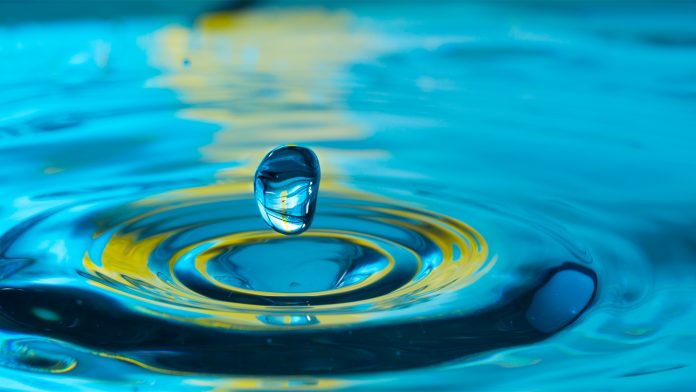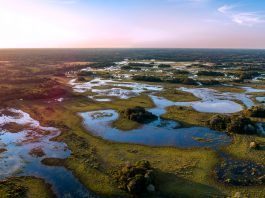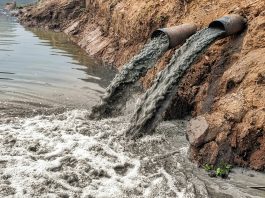The International Water Association and its members are working to make a world in which water inequity is a thing of the past.
As we handle the ever-changing landscape of the world in the wake of COVID-19 and numerous climate catastrophes, the International Water Association (IWA) is dedicated to ensuring that people around the world have access to safe water and proper sanitation. Working as a non-profit, IWA acts as a knowledge hub for the water sector, providing a platform for water professionals to connect globally, finding solutions to some of the biggest water supply and sanitation challenges. IWA not only looks at how communities can work towards clean and sustainable water provisions, but they also look at how global and national policy can be adjusted to support the key goals and issues identified as key to creating a water wise world, free from water inequity.
The four key programmes, Digital Water, Basins of the Future, Cities of the Future, and Water and Sanitation Services, form the basis of their work towards achieving key Sustainable Development Goals set out by the UN. This includes, in particular, Goal 6, which aims to ‘ensure availability and sustainable management of water for all.’
Innovation News Network spoke to Daniela Bemfica, Director of Strategic Programmes and Engagement for Water and Sanitation Services, about IWA’s work and why it is crucial in ensuring water inequity and global public health, especially amid a worldwide pandemic.
Why is IWA’s work in water quality so crucial?
While population growth and urbanisation lead to higher freshwater demand, human activities generate greater levels of pollution and deteriorate the quality of water resources. In addition to serious environmental impacts, poor water quality affects water supply and threatens human health. Currently, the lack of a safe and reliable water supply affects more than 800 million people worldwide. Thus, ensuring appropriate water quality is one of the main challenges facing the world today, requiring an unprecedented global response.
The IWA, as the leading international network of water professionals, plays an important role in addressing this challenge, bringing together over 7,000 members from 136 countries worldwide and working towards a world in which water is wisely, sustainably, and equitably managed.
IWA works innovatively across a range of areas that contribute to the progression of water management worldwide, bridging the gap between science and practice, and ensuring the IWA remain solutions and service orientated. Through its international membership, IWA works to place water on the global policy agenda and to influence best practices in regulation and policymaking, contributing to building a water wise world. Whilst IWA’s world-class events and publications bring the latest science, technology, and best practice to the water sector at large, IWA’s programmes develop research and projects focussed on solutions for water and wastewater management.
Many of these projects are working towards achieving SDG 6.3, which outlines that we must ‘by 2030, improve water quality by reducing pollution, eliminating dumping and minimising release of hazardous chemicals and materials, halving the proportion of untreated wastewater, and substantially increasing recycling and safe reuse globally’.
The Regulating for Citywide Inclusive Sanitation initiative, for instance, aims at identifying the needs, opportunities, and tools for action to support and inspire regulators in their contribution to ensuring safe, equitable, and sustainable sanitation for all, irrespective of where people live within the city or what technologies are used to serve them.
Focussing on water and wastewater utilities, the AquaRating initiative provides a comprehensive, impartial, and credible evaluation assessment system, jointly developed by the IWA and the Inter-American Development Bank. This enables water and sanitation operators to focus on the quality of their service, allowing the design and implementation of effective performance improvement plans.
Finally, another project directly linked to improving water quality is ‘Nature for Water and Sanitation’. Jointly developed by IWA and The Nature Conservancy (TNC), this initiative aims to mainstream nature-based solutions (NBS) in water and sanitation infrastructure planning and spending. The initiative has recognised IWA members’ interest in incorporating catchment management among the responsibility of utilities and their regulators. NBS can be part of traditional and decentralised wastewater treatment systems, reducing costs and providing other benefits.
The ‘Sanitation for and by Nature’ working group, led by IWA in partnership with TNC, brings together a diverse group of professionals. They are focused on developing practical guidance on how to use NBS more effectively for wastewater treatment in a way that benefits both people and Nature. In addition, they use modelling and scientific analysis to understand how the implementation of sanitation goals will impact Nature. Bringing these two areas together emphasises IWA’s strategy of linking science, policy, and practice.
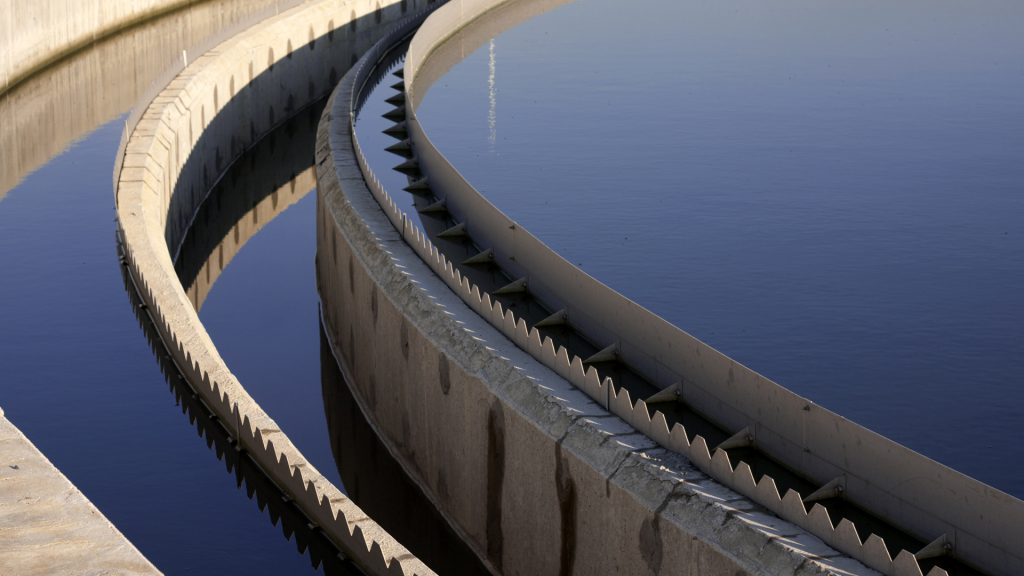
How has the recent pandemic affected global efforts to improve water quality?
The recent COVID-19 pandemic has emphasised that adequate hygienic conditions, ensured through safe water supply and sanitation services, are imperative to protect human health. The battle the entire world is waging against the SARS-CoV-2 virus has further highlighted the well-known inequalities regarding Water, Sanitation and Hygiene (WASH) services, not only linked to the income of countries, but also often the internal inequities many face. In this context, one of the main challenges is how to ensure that hygiene campaigns to eliminate the virus are successful in places where safe water supply coverage is lower than 50%, as in some countries in sub-Saharan Africa and South and South East Asia.
The COVID-19 pandemic has therefore made even more evident the need for massive investments in economic, human, and technological resources in order to improve water quality and ensure safe WASH services for all.
Aware that the water sector has much to contribute to the understanding of and the battle against this pandemic, early in 2020, IWA convened a Task Force (TF) from its membership to provide the sector with an authoritative reference point regarding both the relevant science and operational matters.
The IWA COVID-19 TF aims to provide the international water sector with updates on state-of-the-art science, the attributes of the virus, and measures needed to protect both water sector workers and further public health.
Many different relevant topics have been discussed, including, for instance, the presence/persistence of the SARS-CoV-2 virus in water sources and its fate and inactivation during treatment and disinfection. Wastewater monitoring has also been an important subject matter as a surrogate measure of the spread of the virus in communities. Among other outputs (e.g., webinars, discussion forums, articles, etc.), the IWA COVID-19 TF has prepared guidance on lessons learnt during the COVID-19 pandemic, capturing best practices that can be put in place immediately and also during the next pandemic or epidemic phases. IWA believes that the experience gained during this type of emergency will increase the capability of the water sector to deal with a broad range of other future challenging circumstances.
What work can be done within communities to improve water quality and sanitation in urban areas?
The answer to this question must consider two highly different perspectives: communities that still face serious shortages of WASH services, and communities where high-quality water supply and comprehensive sanitation coverage has already been achieved. In both cases, ensuring clear and easy to access information on water quality is essential. However, in communities that still lack adequate water supply and sanitation services, the main point of discussion remains public health. In this context, a well-informed population is in a position not only to pressure their governments and decision-makers on the importance of ensuring safe WASH services for all, but also to actively participate in collectively built processes of developing tailored comprehensive and efficient water supply and sanitation solutions, which will have an impact both on public health and on the environment.
On the other hand, communities that already have a safe water supply and guaranteed sanitation services can also improve the quality of water resources by considering a wider environmental perspective. Once again, comprehensive, and accessible information is key. A well-informed population can play an important role in helping to improve the quality of water resources, either by making wise personal decisions (such as changing consumption habits and making environmentally focused political choices) or engaging in campaigns to raise awareness and to demand practical actions from other relevant actors (e.g., industrial, and agricultural sectors).
What does the future of water quality control look like, and what part does the IWA play?
Addressing challenges such as climate change, population growth, and increasing urbanisation calls for a paradigm shift to the next generation of water systems beyond traditional water and sewerage infrastructure. The development of new systems is happening against a background of cyber-physical systems, digitalisation, and Big Data where software, sensors, processors, communication, and control technologies are increasingly integrated to enable informed decisions in an increasingly changing, complex, and uncertain world.
Aware of this scenario, and aiming to act as a catalyst for innovation, knowledge, and best practices around digitalisation for the water industry, IWA has established the Digital Water Programme (DWP). The main objective of the DWP is to provide a platform to share experiences and promote leadership in transitioning to digital water solutions, and to consolidate lessons to guide the natural evolution from the traditional analogue methods to achieving a digital water utility.
The DWP intends to develop roadmaps and guidance that will help water and sanitation utilities transition to the next generation of smart water systems and to fulfil the need for improved resiliency to secure and sustainably manage water resources now and in the future.
In this context, IWA is also a key partner of the PrimeWater consortium, a project funded by the European Union’s Horizon 2020 Research and Innovation Programme. PrimeWater builds on advanced Earth observation (EO) data products, integration with additional data sources, and diagnostic modelling tools. It aims to update to the public and private sector regarding increased situational intelligence, enhanced predictive and early warning capabilities, and adaptive management of water resources. IWA leads the communication and dissemination activities of the project and the efforts to reach new markets through the establishment of a Community of Practice. This community aims to facilitate the co-design, co-creation, and co-evaluation of technologies, improve the dissemination of PrimeWater’s outcomes, and increase understanding of EO and their integration with other technologies in the water resources management field.
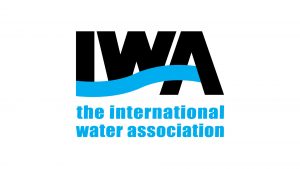
Daniela Bemfica
Director of Strategic Programmes and Engagement
IWA
International Water Association
Please note, this article will also appear in the seventh edition of our quarterly publication.

